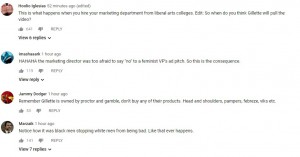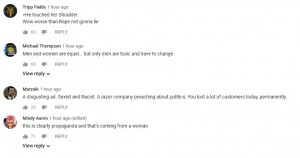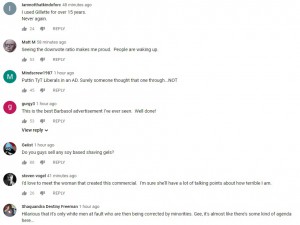A new kind of non-toxic
Director Kim Gehrig helps Gillette question what it really means to be a man.
Odds are, unless you hold a gender studies degree or were a regular user of Tumblr prior to 2016, the term “toxic masculinity” is a relatively new phrase to you.
The term, which has become increasingly mainstream in recent years, applies to outdated-yet-dangerous ideals of manhood that are perpetuated by society. Still not sure? Perhaps you’re familiar with these terms:
- “Man up.”
- “Boys don’t cry.”
- “Grow some balls.”
- “Boys will be boys.”
- “Men can’t control themselves.”
- “That’s a man’s job.”
Toxic masculinity is just that – it’s toxic. But it’s also highly pervasive, to the point where we often don’t notice it.
That’s something Gillette wants to change.
Its new digital spot, director Kim Gehrig took a spin on Gillette’s 30-year-old slogan, “The best a man can get.” Because, well, this currently world we’re living in, the way men and women view each other (and themselves) may not be the best we can get.
The spot acknowledges that, post-#MeToo, we’re finally taking a good, hard look at what it means to be a man, what’s expected of men and how we can be better. While the spot focuses on some tough, ugly truths – like the normalization of male violence, or the way we view sexual assault – there’s also a positive, uplifting message that men can help each other do better.
(It helps that that message is delivered by athlete, actor and assault survivor Terry Crews, in a video used from his testimony before the Senate Judiciary Committee last year. Whether you’re a fan of unstoppable, athletic, heroic Crews in The Expendables or of compassionate, responsible and uber-paternal Crews in Brooklyn Nine-Nine, it’s hard to argue against a better model for modern masculinity).
Take a look at the spot for yourselves and try not to feel inspired – especially by the new platform, “The best a man can be.”
While we applaud pretty much everything about the creative – including the added racial, cultural and age diversity depicted – we also want to point out the phenomenon commonly known as Lewis’ Law. The term, coined by Helen Lewis in 2012, states that the comments on an article (or, in this case, video) about feminism generally go to prove the point of the article.
So while we applaud Gillette and director Gehrig for pouring their creative souls into something truly amazing, we can never forget that there’s still a ton of work to do. Let these comments serve as a reminder that it’s about much more than shaving slogans.
Credits
Client: P&G – Gillette
Director: Kim Gehrig
























Leave a Reply